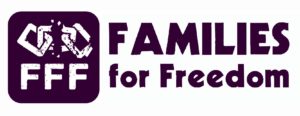This year marks the 20th anniversary of harsh immigration laws that ushered in a devastating era of mass deportation. These laws – the Illegal Immigration Reform and Immigrant Responsibility Act (IIRAIRA) and the Antiterrorism and Effective Death Penalty Act (AEDPA) of 1996 – vastly expanded the pool of non-citizens marked out for “removal,” led to the creation of a massive, militarized deportation apparatus under the auspices of the Department of Homeland Security, made detention and deportation mandatory for a wide range of past criminal offenses, and stripped immigrants of many basic rights, including the right to a fair day in court.
Over the coming weeks and months, we’ll be asking partners and allies across a range of issues and communities to detail the impact of these laws on their memberships and constituencies, and describe what needs to change. This week, we’re featuring Families for Freedom, a New York-based multi-ethnic human rights organization by and for families facing and fighting deportation.
Featured Partner: Families For Freedom
1) How do the ’96 immigration laws affect your membership?
Families for Freedom was started when some of its founders’  families were detained andfacing deportation. Like most people, then and now, they had no idea of the 1996 laws and their devastating impacts when applied. The two laws, IIRAIRA and ADEPA, with their provisions that made misdemeanors ‘aggravated felonies’ and introduced mandatory detention and deportation, have wreaked havoc on our members and our communities.
families were detained andfacing deportation. Like most people, then and now, they had no idea of the 1996 laws and their devastating impacts when applied. The two laws, IIRAIRA and ADEPA, with their provisions that made misdemeanors ‘aggravated felonies’ and introduced mandatory detention and deportation, have wreaked havoc on our members and our communities.
The retroactivity of the laws continues to be a source of great fear. For example, a father of four US children is held in ICE custody and then deported for having a decades old conviction for drug offenses, for which he served no jail time, leaving behind a fractured family bewildered at the disproportionately harsh consequence.The high cost of fighting cases, lack of access to legal counsel, and separation from our loved ones places an irreversible burden and trauma on our families.
2) What needs to change?
People who are directly affected building power where needed to lead a movement that engages our communities to roll back mandatory detention and deportation provisions of the 1996 laws.
3) It’s time to #fix96 so that…
…we can stop creating generations of fractured families.
